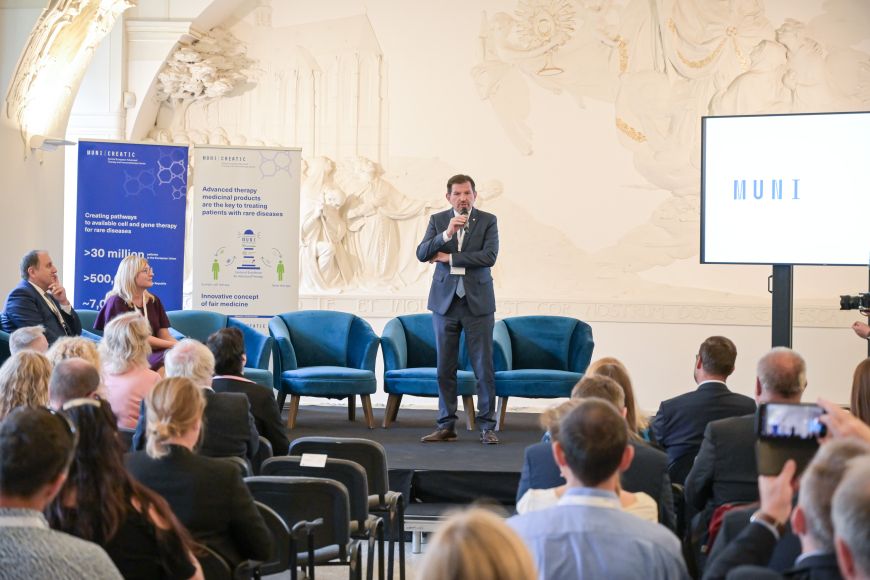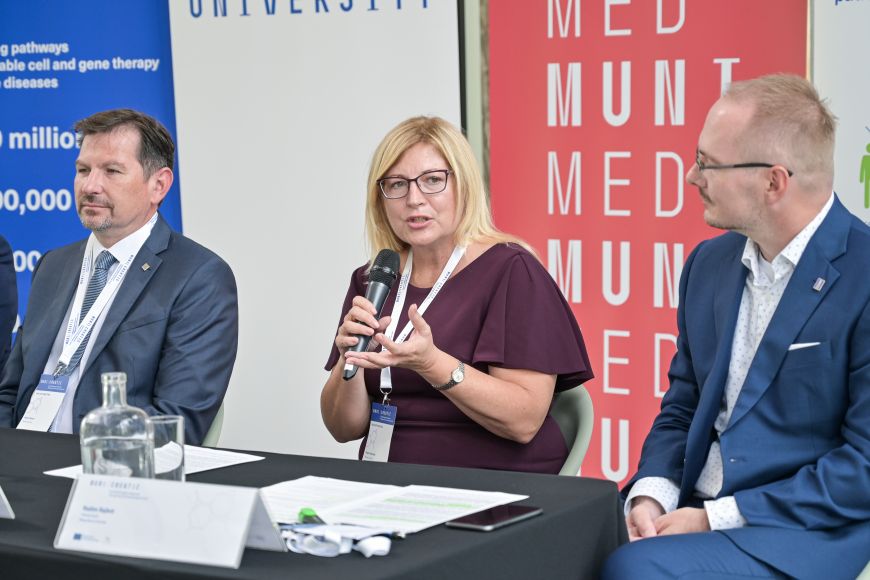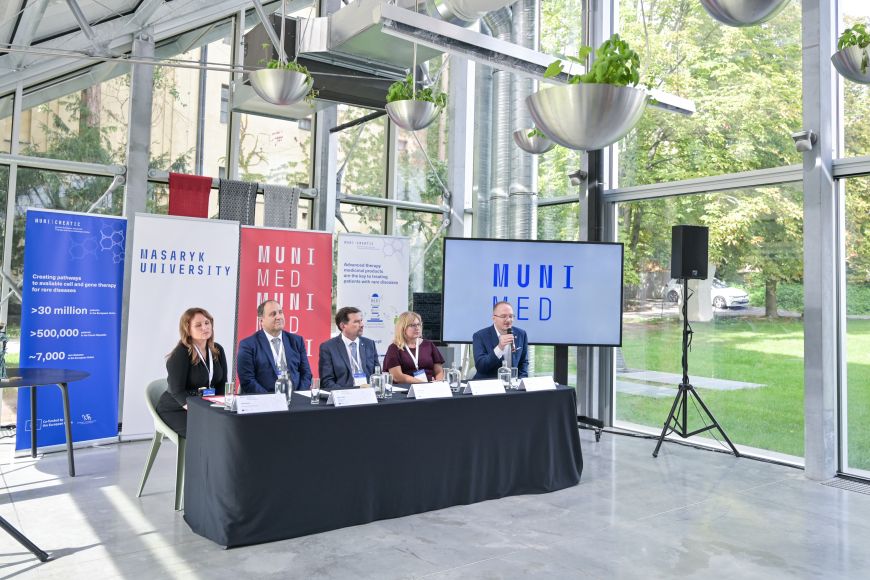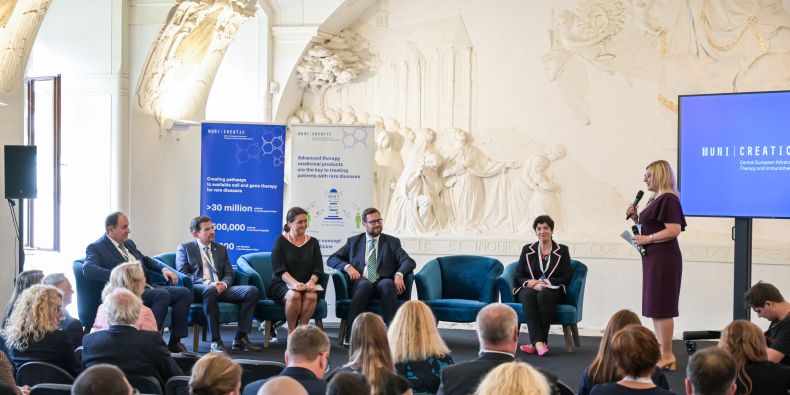In the Czech Republic, more than half a million people suffer from one of 7,000 described rare diseases. “In my original profession as a doctor, many times I encountered situations where it was no longer possible to help a patient, and believe me, these are strong moments for the doctor as well. But now, thanks to the CREATIC project, we have sparked an imaginary light of hope for at least some of them. And as the rector of Masaryk University, I am proud that our institution can be part of such a unique project that aims to help and give hope for life,” said Rector Martin Bareš, who attended the opening ceremony of the project in the Mendel Refectory at the Augustinian Abbey in Old Brno.

The new centre will be called CREATIC (Central European Advanced Therapy and Immunology Centre) and will be located in renovated Building C03 at the Bohunice University Campus. The Faculty of Medicine has been awarded a prestigious European grant from the Teaming Horizon Europe research and innovation programme in the amount of 15 million EUR (approx. 360 million CZK) for a six-year period, with additional support of over half a billion crowns coming from national sources under the Jan Amos Komenský Operational Programme.
CREATIC will also connect geographically close academic and clinical sites, which will also benefit Czech patients as they will gain access to medicines developed by the Fraunhofer Institute for Cell Therapy and Immunology in Germany. Other collaborating institutions include the Universities of Leipzig and Copenhagen – the Danish partners will, for example, offer their expertise in legislation, data handling, and the ethics of gene therapies. “Czech patients will benefit from the project, but the overlap is Europe-wide,” said Helena Langšádlová, minister for science, research and innovation, who attended the project launch ceremony together with Jiří Nantl and Václav Pláteník, the deputy ministers of education and health, respectively.
The CREATIC project is headed by Regina Demlová, head of the Department of Pharmacology at the MU Faculty of Medicine, whose team has focused in recent years on the development of drugs for rare cancers affecting mainly paediatric patients and also on the diagnosis of epidermolysis bullosa, known as butterfly wing disease. Pharmacologists have developed two drugs for them. “They enable very precise and targeted treatment of these rare diseases and can be produced on a small scale for a limited number of patients,” said Demlová.

This work will be followed up by the CREATIC Centre during the reconstruction of the pavilion next year. “We will work with each patient in a highly personalised way, because the drugs come from substances derived from the patient's own cells,” explained Associate Professor Demlová, explaining the principle of activating and stimulating the patient's own immune system.
An anti-cancer vaccine developed by pharmacologists in Brno saved the life of nine-year-old Daniel, whose brain tumour was not helped by conventional chemotherapy. “The worst thing was the helplessness, the feeling that there was no hope,” recalls the boy's mother in a short documentary that was shown at the start of the CREATIC project to give an overview of the whole issue of rare disease treatment.
The treatment itself requires high costs, which are rising as diagnostic possibilities improve and the number of patients increases. However, from the perspective of the pharmaceutical industry, this is a relatively small market, which can complicate drug development. “In the case of rare diseases, I believe that research, development and production of drugs in an academic environment will in the future be a necessary complement to the activities of the pharmaceutical industry, for which it is neither capacity- and economically feasible to develop all drugs for the rapidly growing number of very rare diseases,” said Martin Repko, dean of Faculty of Medicine. “The production and development of medicines on a non-commercial basis is one of the ways to ensure their availability and at the same time, the stability of public budgets,” added Regina Demlová.

According to MU Rector Martin Bareš, the whole project fulfils all the roles in which the university operates: education, research, and the third role of the university. “Knowledge benefits those who need it most. The project results will affect individual patients and can make a positive difference in their lives and their families,” concluded Bareš.
